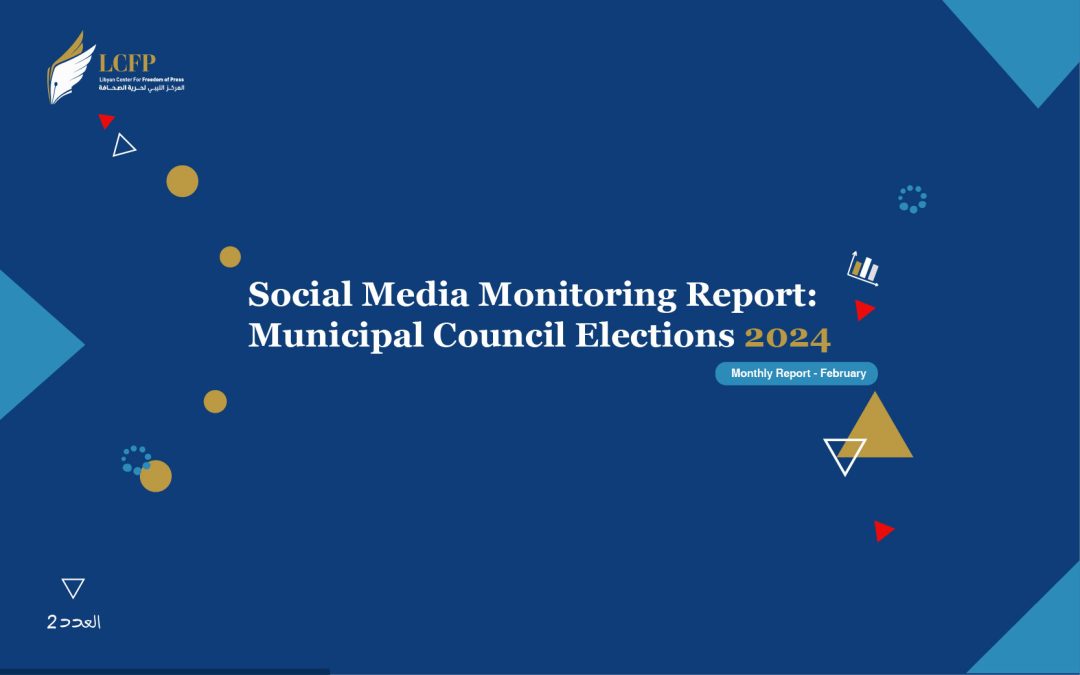
Social Media Monitoring Report: Municipal Council Elections (February)
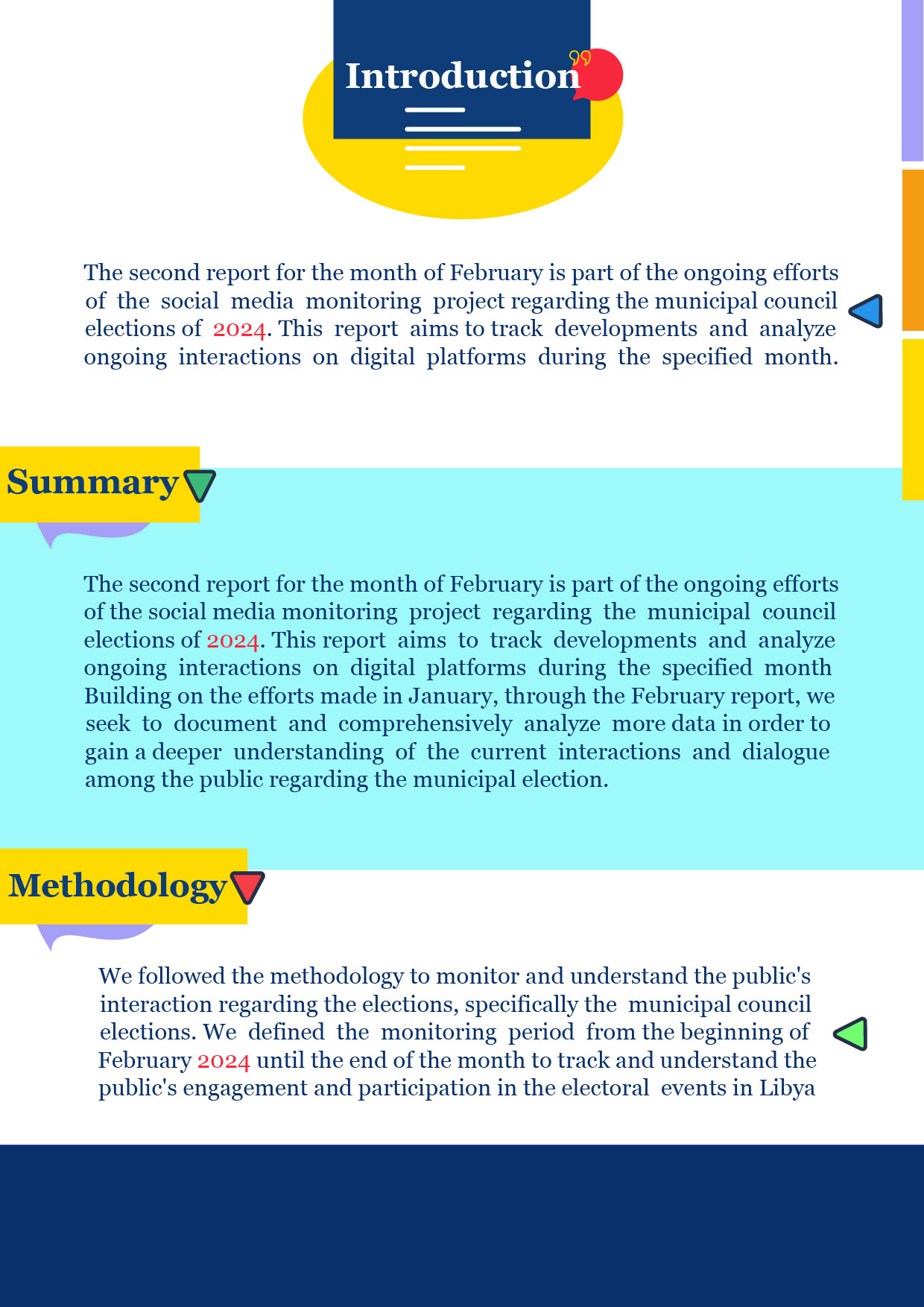
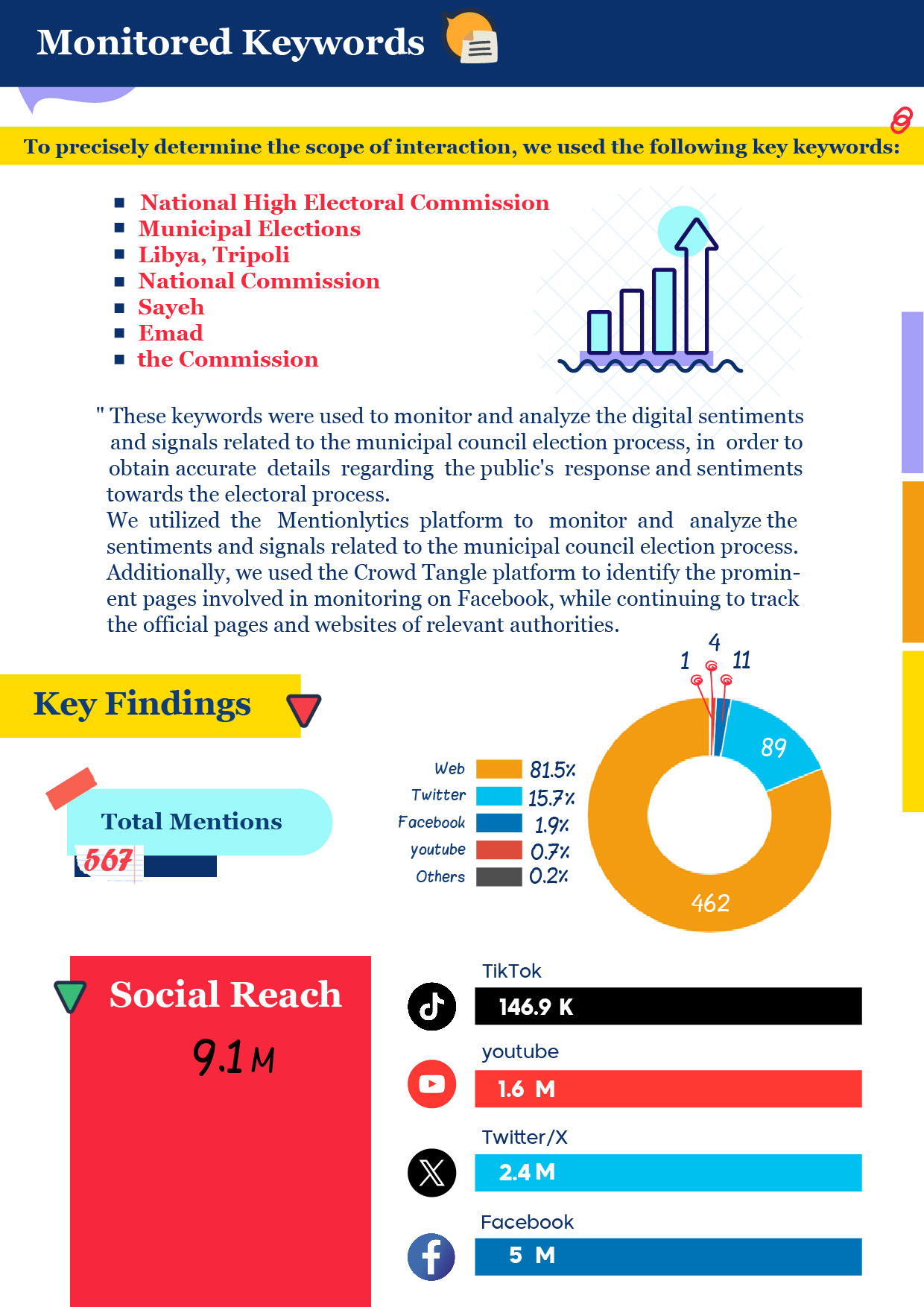
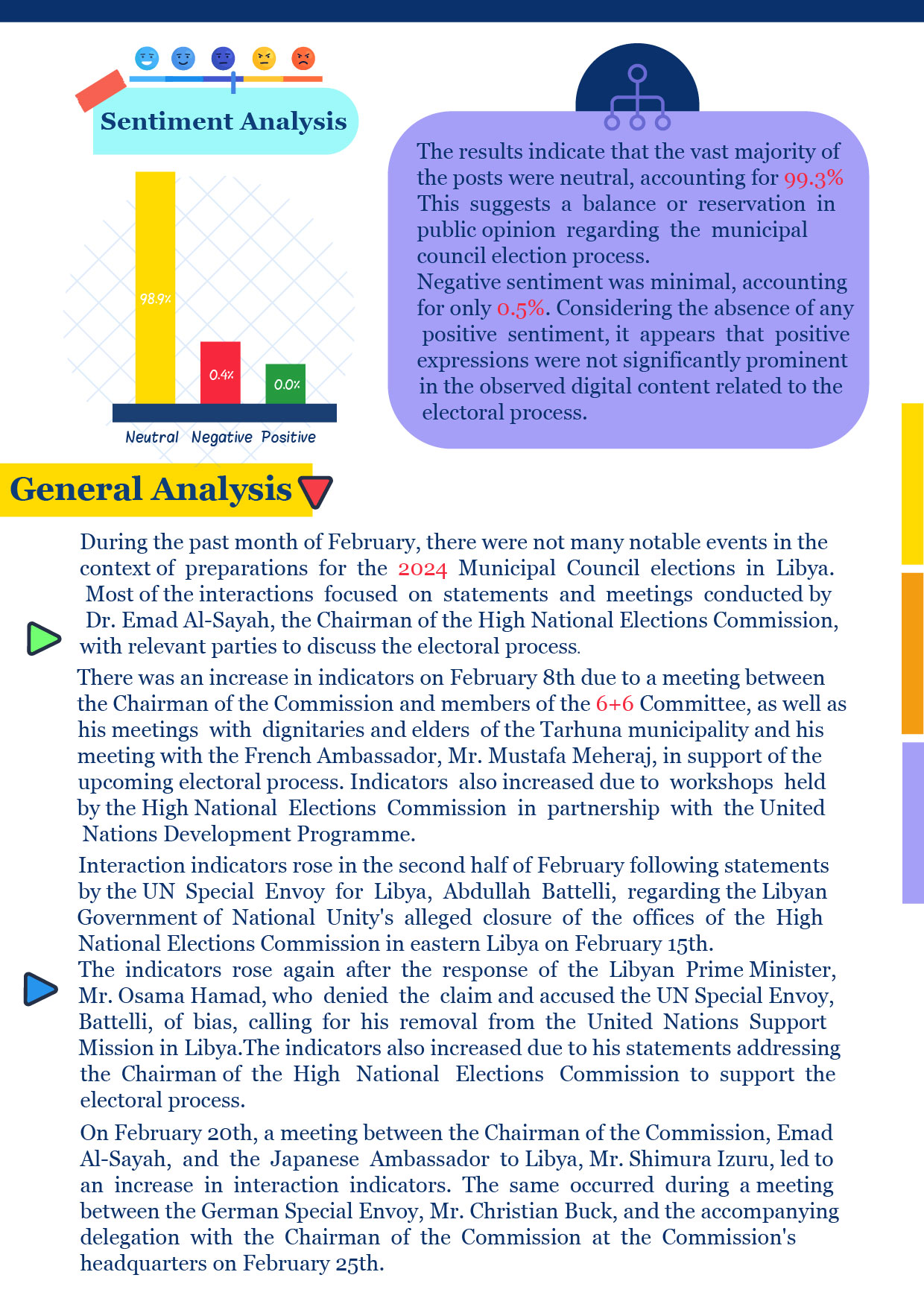
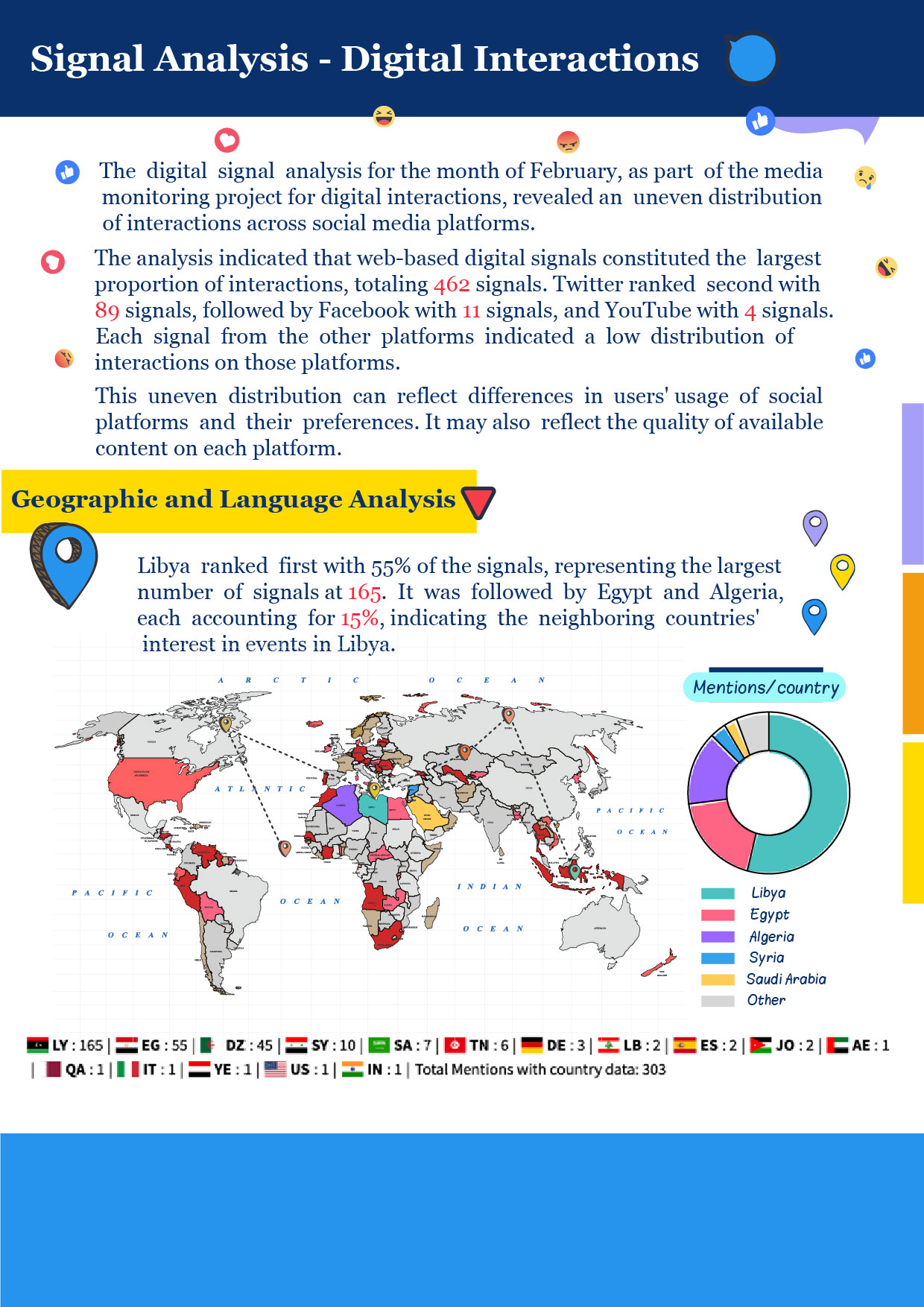
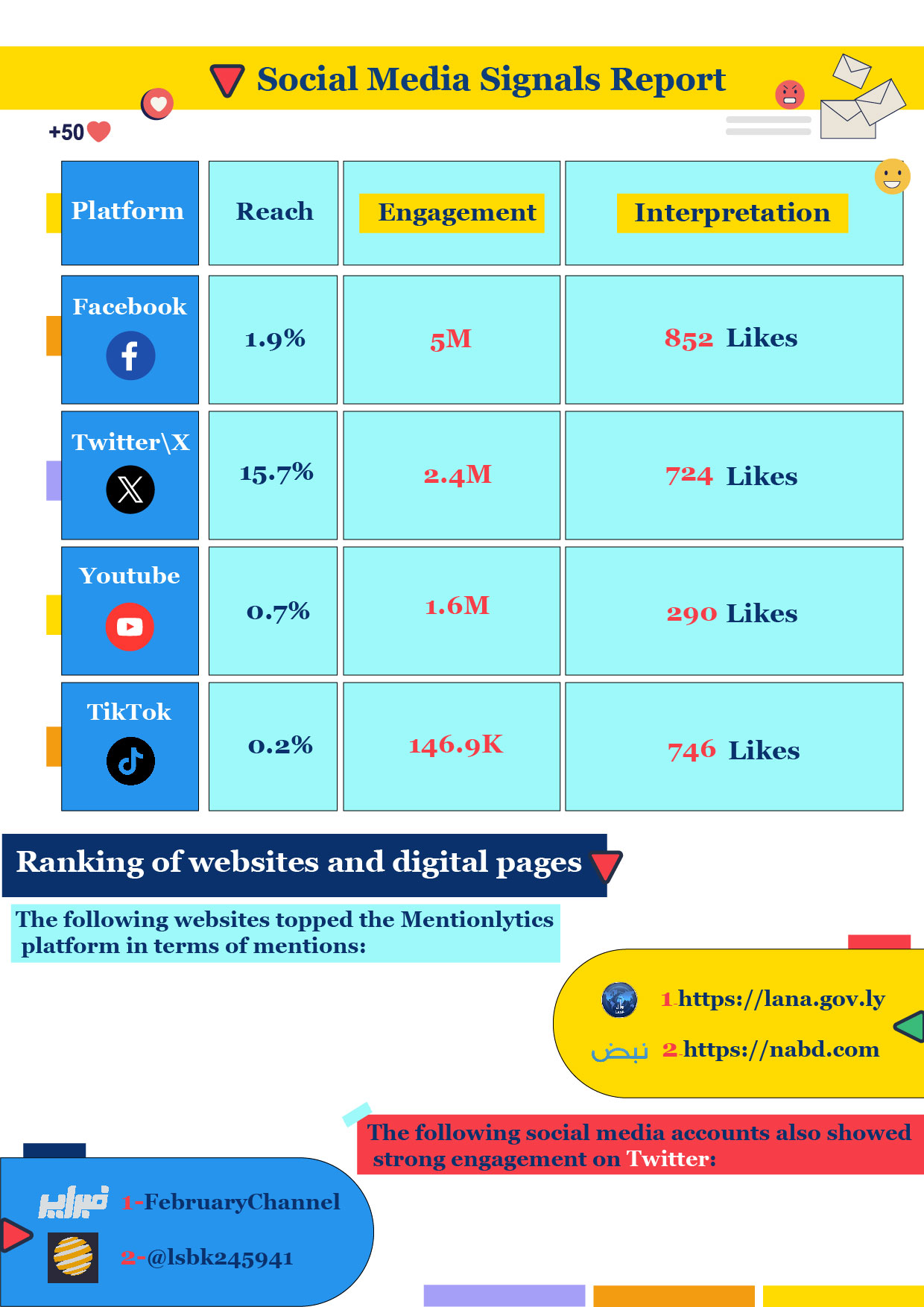
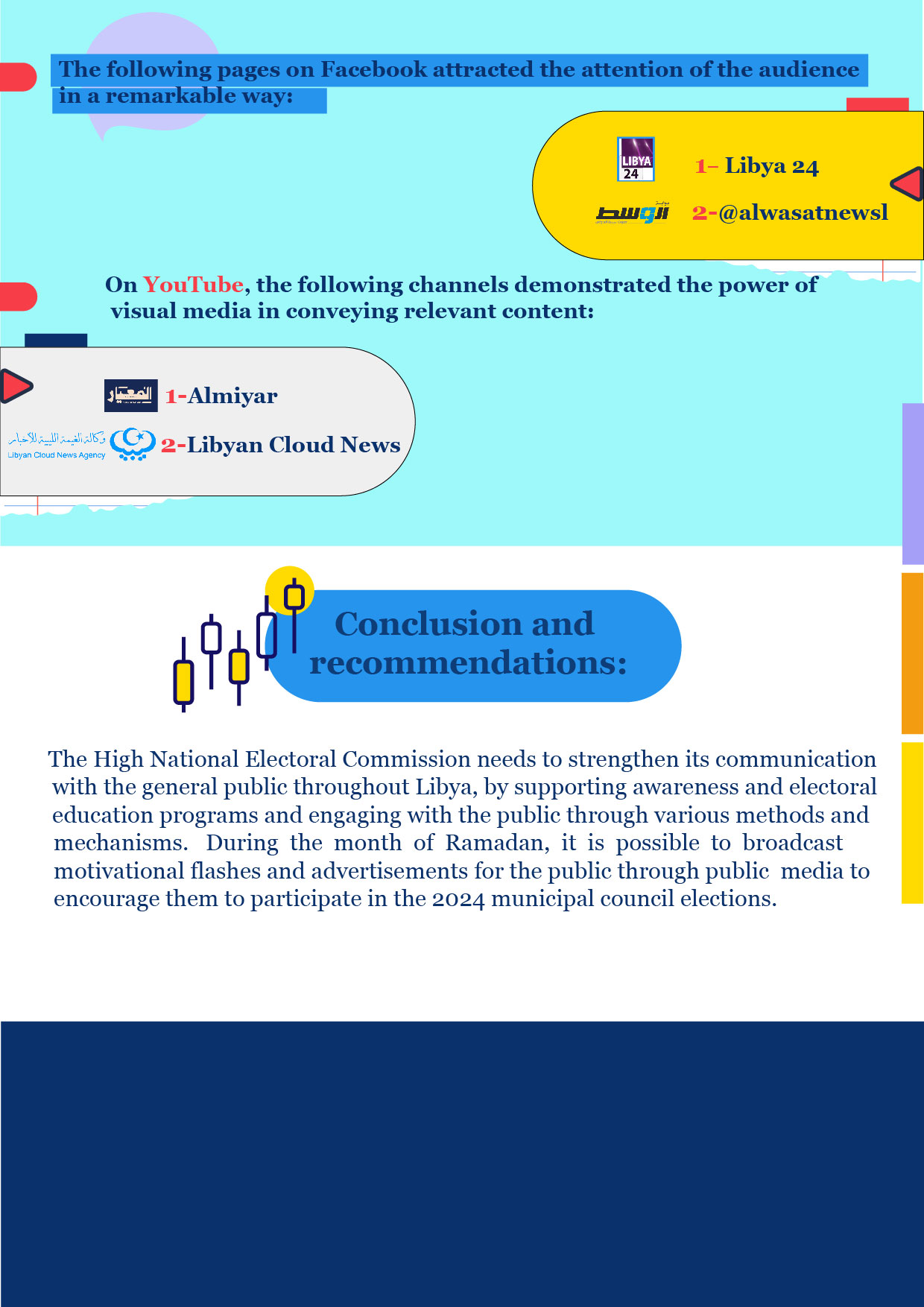
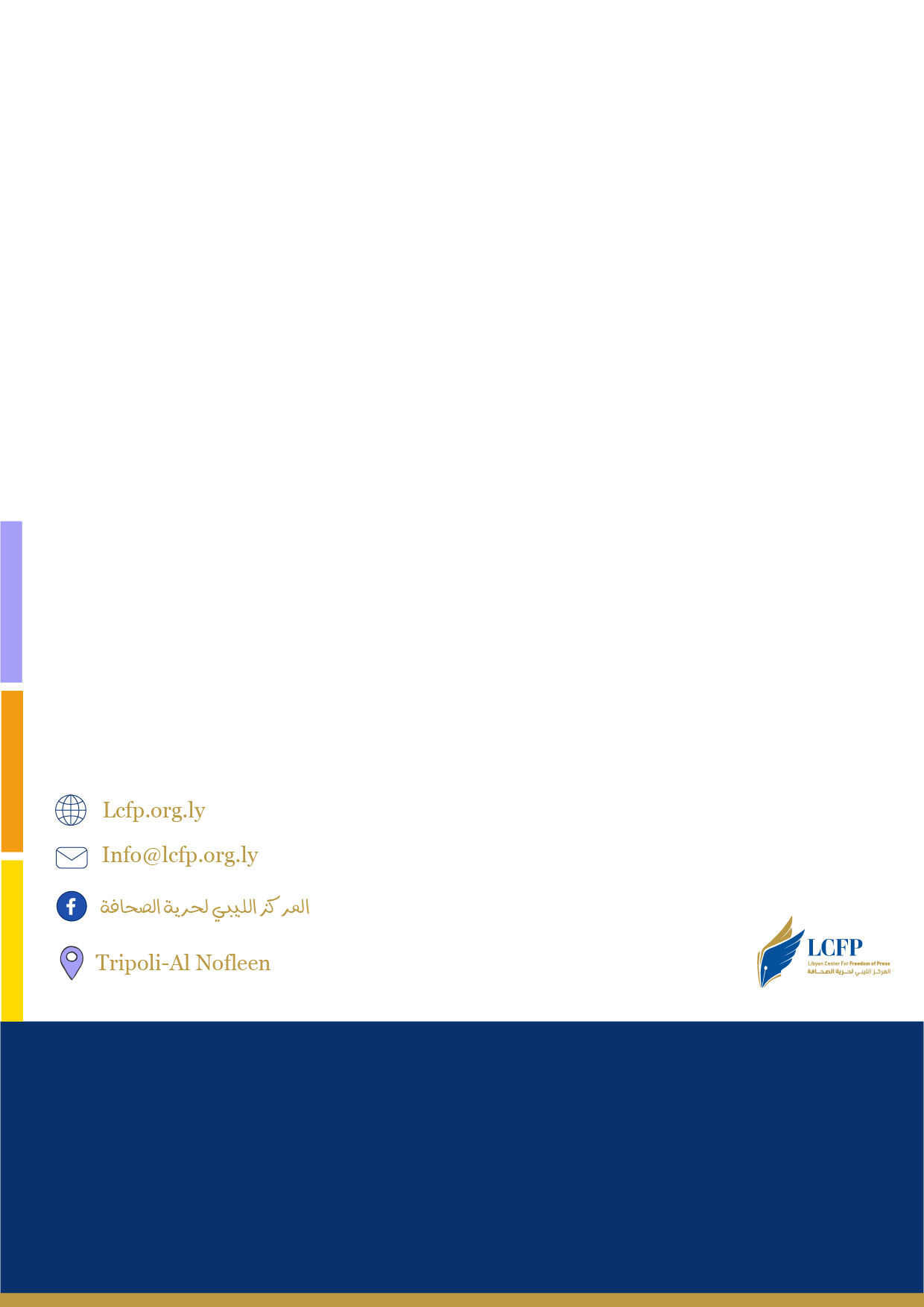








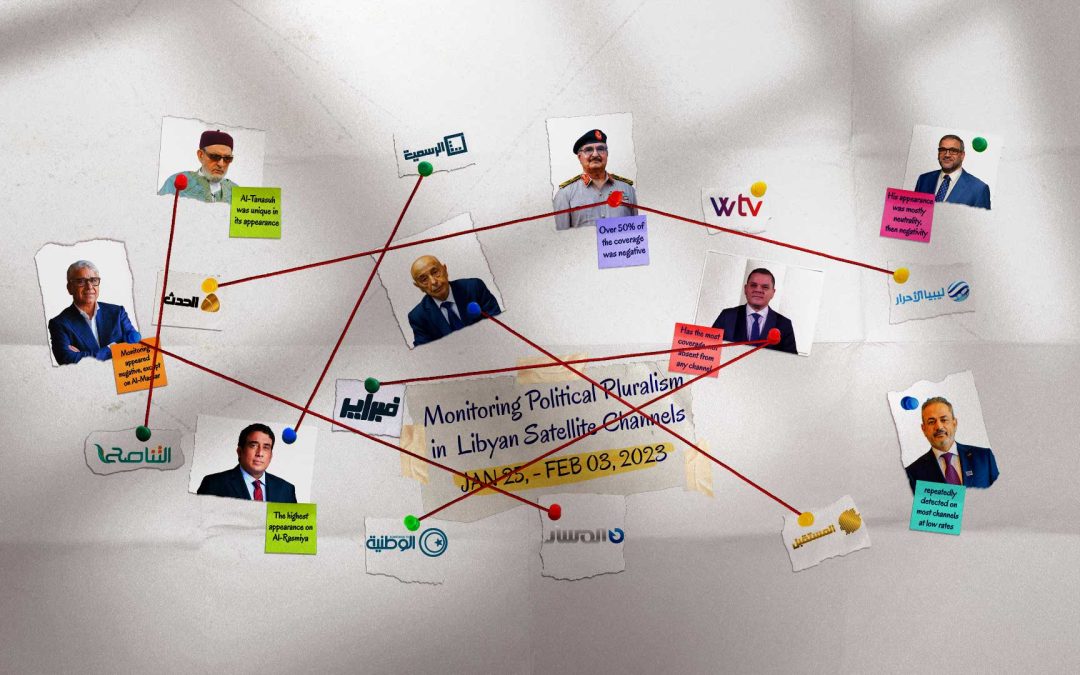
Tripoli, Monday, September 4: The Libyan Center for Freedom of Press (LCFP) issued a new research report, the first of its kind in the Libyan context, on “political pluralism in Libyan satellite channels” in preparation for the national elections. The research report is launched in partnership with MENA Media Monitor .
The new research report focuses on monitoring and analyzing the content of 9 of the most followed and influential Libyan satellite channels that address political issues and public affairs in their programs. We have monitored 450 hours of live television broadcast. Our observation was focusing on 6 prominent political figures.
The research report concluded that the concepts of professional balance and political pluralism are lacking in most of the targeted media outlets in their coverage of the complex political events in the country. The majority of these channels lean towards the political propaganda of certain people and their political orientations.
The February and Al-Masar TV channels took over 41% of the total media coverage and appearence of political figures in the Libyan media scene. The Prime Minister Abdul Hamid Dbeibeh, General Khalifa Haftar, leader of the House of Representatives Aguila Saleh, former President of the High Council of State Khaled Al-Mishri, and President of the National Oil Company Farhat bin Qadara appear the most in the content that was monitored in the Project during the monitoring period.
The results of the monitoring operations show that the Prime Minister of the Government of National Unity received a coverage with a positive trend of 35%. Then, the commander of the armed forces in the east of Libya, Khalifa Haftar, received a positive coverage trend of 28%. After that, comes the former head of the parallel Libyan government, Fathi Bashagha, with a rate of 26%. As for negative coverage, we find General Khalifa Haftar at a rate of 53%, followed by Fathi Bashagha at a rate of 44%, and then the president of the House of Representatives, Aguila Saleh, at a rate of 43%.
Despite the wide presence of the Prime Minister in media, it was negative. For instance, he received 25% of the media coverage of Al-Masar TV channel, yet, with a negative trend of 82%. The former Presidents of the House of Representatives and the High Council of State, on the other hand, have been covered at a rate of 17% each, with a negative trend of 55% for Aguila Saleh, and 26% for Khaled Al-Mashri.
The Prime Minister of the Government of National Unity, Abdul Hamid Dbeibeh, topped the list of the highest appearing figures in Libyan media by more than 24% of the monitored content. In February channel, which he is believed to own, he receives a 44% coverage with a positive and neutral trend of 91%. On the other hand, the appearence of General Khalifa Haftar and the president of the House of Representatives, Aguila Saleh, is around 21% each with a negative trend of more than 90%. This means that February channel has shifted from media service to political propaganda in favor of one political figure.
General Khalifa Haftar obtained 25% of the total coverage of the Libya Al-Hadath TV channel, which is owned and managed by one of his sons. This coverage was generally positive by 89%. The General is also the first politician covered by Libya Al-Ahrar TV channel by 23%. However, the trend is negative with 59%. The results of the monitoring operations show that the coverage of the Libya Al-Hadath channel is blatantly biased towards Haftar compared to the rest of the political figures.
The Chairman of the House of Representatives, Aguila Saleh, also dominates the coverage of Libya Al-Mustaqbal TV channel by 26%. The channel is affiliated with the Presidency of the House of Representatives. This coverage was positive by 71%, while Prime Minister Abdul Hamid Dbeibeh appeared in 13% of the covered materials, but with a negative trend of 80%.
However, what is interesting is the diversity in the coverage of a large number of political figures in Al-Wasat TV channel. Despite the fact that the Prime Minister leads the coverage by 20%, Al-Wasat channel does not show any blatant bias towards any of the political actors in Libya. The coverage trend is more neutral or negative than it is positive.
It is evident that Libya’s Grand Mufti, Sheikh Sadiq al-Ghariani, obtains an 89% positive trend in Al-Al-Tanasuh TV channel, since it is affiliated with Dar al-Ifta. General Khalifa Haftar appears in the channel with an absolute negative trend of 76%. Aguila Saleh and Abdul Hamid Dbeibeh obtained an equal coverage of 14% in Al-Al-Tanasuh TV channel. However, that coverage is negative for Aguila Saleh and ranges between positive to neutral for Abdul Hamid Dbeibeh.
The research report shows the absence of the concept of political pluralism in public media, namely Al-Rasmia and Al-WatanyaTV channels. Their role is limited to being the first communication institutions of the Presidential Council and Government of National Unity. In addition, 97% of the political figures monitored in satellite channels are over the age of fifty years. Moreover, while men accounted for 94% of the coverage in the Libyan monitored channels, women are absent from the political media scene.
Due to the important and sensitive role played by Libyan media, and to the influence of the intervening and controlling political figures, LCFP continues to work in conducting more media research and studies to understand the Libyan media problems and challenges. Through this, LCFP attempts to implement the concept of self-regulation, and to develop a tool that measures the professional balance in media coverage in order to ensure fair representation and equal opportunities among candidates in the stalled upcoming national elections.
Many executive institutions in the media sector have been established. They start without a clear strategic vision for their mission and tasks, especially under the legislative gap, the absence of media laws and the lack of the right to access information. On the other hand, satellite channels and digital platforms play an important, but negative, role in the Libyan crisis.
The research report shows the urgent need to install a pluralistic media scene that ensures fair representation of all political parties. That is a necessity in order to organize free national elections that guarantee the right of both voters and candidates. The report focuses on knowing the extent to which Libyan politicians appear in the media scene, and does not aim at defaming or undermining the efforts of newsrooms.
Download the report via the following link :
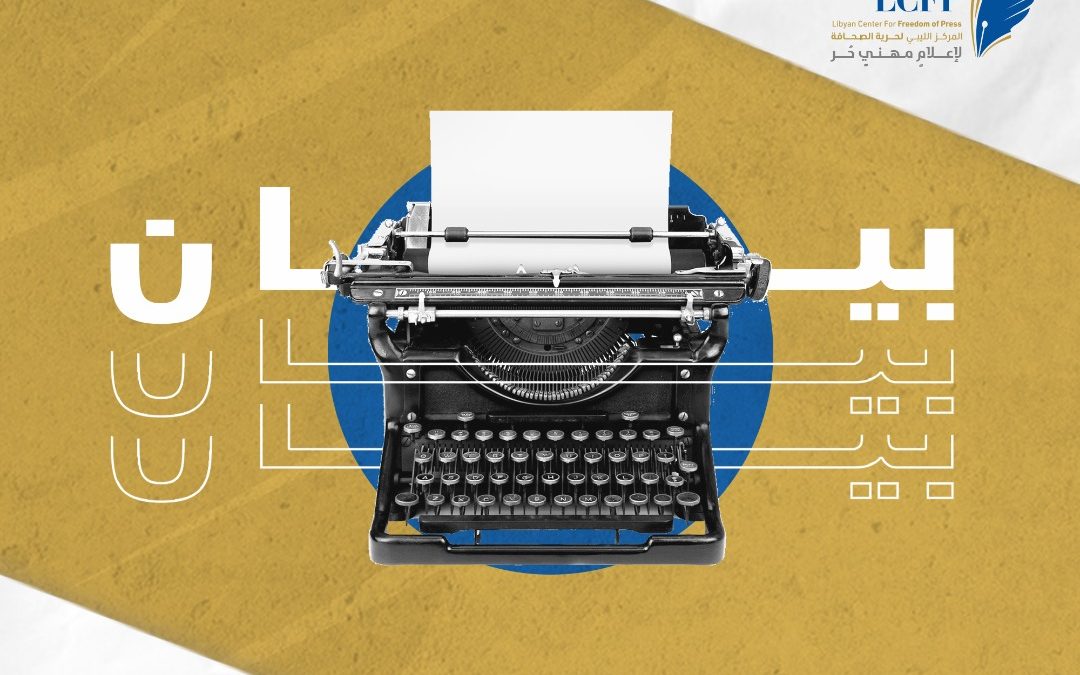
We, activists and members of civil society organisations working on ongoing human rights violations against migrants, asylum seekers and refugees in Libya, express our deep concern regarding the general climate of impunity and lack of accountability in the country. This volatile situation is further hampered by the shrinking of civic space, especially in light of through the criminalisation of activists and the crackdown on civil society organisations
Detention centres
In the last 6 years, since the Italy-Libya Memorandum of Understanding was signed, almost 185,000 people have been intercepted at sea by the so-called Libyan Coast Guard and brought back to detention centres in Libya. In these centres, which are at the hands of violent militias, they are at high risk of being subjected to mistreatments, forced labour, rape, torture and trafficking. A recent research carried out by Tilburg University concluded that at least 200,000 refugees (mostly from Eritrea) have been enslaved and trafficked in Libya between 2017-2021
The OHCHR Report Unsafe and Undignified: The forced expulsion of migrants from Libya, as well as the June 2022 report from the Independent Fact-Finding Mission on Libya, found evidence of war crimes and crimes against humanity in the specific case of migrants’ detention centres
Since 2021, some of the “official” detention facilities are being run by the Stabilisation Support Authority (SSA), which, according to Amnesty International, is a “a state-funded militia that operates with impunity” and who also intercepts migrants at sea
In its latest report dated 30 January 2023, the UN Fact-Finding Mission on Libya said that “arbitrary detention in Libya has become pervasive as a tool of political repression and control”, and that “Libyan authorities must take decisive steps to provide justice and redress to the vast number of victims suffering from long-standing violations of human rights and international humanitarian law”.
Externalisation policies, pullbacks and pushbacks
The EU and its Member States continue to further develop externalisation policies and try to contain migration by all possible means. They do so by equipping and supporting the so-called “Libyan Coast Guard”, who intercepted and returned 24,684 people to Libya in 2022, and almost 3,046 so far in 2023. Evidence shows how some of these interceptions are facilitated by Frontex through aircrafts and drones
The International Organisation for Migration reports that in the whole year 2022, 525 people died and 848 went missing in the Central Mediterranean route. These numbers are likely to be much higher due to the complete absence of information regarding many shipwrecks taking place along this route. As reported by Alarm Phone, pushbacks by merchant vessels are also common The situation at land borders is also extremely worrying: according to official statistics reported by OHCHR, “in 2019 and 2020, at least 7,500 migrants have been expelled from Libya’s external land borders”, most of them Egyptians, Sudanese and Chadians. More recently, forced returns have increased to Niger, Sudan and Chad. Also, boat departures of Egyptians from the East of Libya are on the rise: in 2022, Egyptians were the second nationality of migrants arriving in Italy (after Tunisians), while in 2021, more than 26,500 Egyptians were stopped at the Libyan border. The situation of asylum seekers and refugees inside Libya who are registered with the UN Refugee Agency, UNHCR, and are also victims of arbitrary detention and deportation, is very concerning as well, as is the lack of a legislative framework for the protection of migrant workers in the country. Hundreds of migrants are expelled by Libyan forces to get starved or kidnapped by ransom gangs. In January 2023, 600 migrants detained in Al Kufra facility controlled by the Department for Combating Illegal Immigration (DCIM) were expelled by the Libyan Arab Armed Forces (LAAF). This number included Sudanese asylum seekers registered at the UNHCR. Many are believed to have died in the desert and most went missing
At the same time, the European Union is committed to further “strengthen capacity of Libya to prevent irregular departures”, as stated in the Action Plan on the Central Mediterranean, and to disburse EUR 45 million to Libya and Tunisia to strengthen border management, including supporting Maritime Rescue Coordination Centres (MRCC) and the “training academy for border guards in Libya”. The EU is also committed to “explore ways to improve process to disembark migrants in Libya”, as stated in the 12-point MOCADEM Action file on Libya
Libya is not a safe place for disembarkation for migrants, and despite the numerous acknowledgements of this fact by UN bodies and the Council of Europe, and the many denunciations of agreements, the EU remains silent. On 6 February 2023, Italy handed over the first of the five announced patrol vessels to the Libyan Coast Guard (under EUTF budget), in the presence of European Neighbourhood and Enlargement Commissioner Várhelyi.
It is clear that the way the EU and some EU Member States collaborate with Libyan authorities in the field of migration is further hindering the stabilisation process in Libya. It also fosters a cycle of violence linked to interception and detention which strengthens local militias and human traffickers who are making money out of the lives of migrants, asylum seekers and refugees
We, the undersigned organisations, ask that
The EU and its Member States:
List of signatories
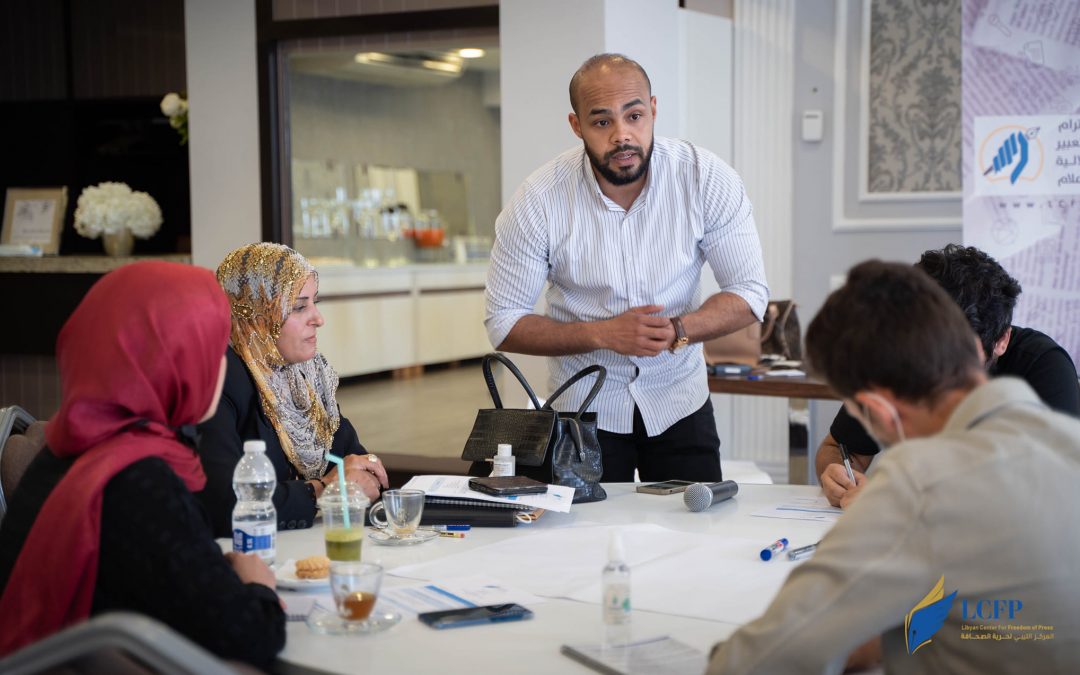
Brief Annual Report
Tripoli_ January 5th
2022 has been a quick year. We are on the verge of the new year 2023, and about to celebrate our tenth year at the Libyan Center for Freedom of Press. However, there are still many actions and missions that must be done to move forward along with a team that is betting on success and making impact. We work in an environment characterized by difficult challenges and increasing professional pressures on all of us, especially those working in Libyan civil society in the light of the fragility of the legal system and the increasing security risks and their complexity
Perhaps the most prominent feature of the past year is the significant shrinkage in the space for civil society work due to the arbitrary measures taken by the Commission of Civil Society in the east and west. 2022 has also witnessed our resilience and steadfast rejection of many decisions of the Government of National Unity. The GNU describes those decisions as reformist while we consider them as selective and vindictive
During the year 2022, we focused on the internal development of our institution. We have endeavoured to modernize its policies and administrative and executive structure. We have also focussed on fine-tuning our vision in supporting freedom of expression, conducting real and radical reforms to strengthen the independence of the Libyan press and the media sector. We have been pushing forward to promote the economic and social rights of journalists who continue to face exceptional critical circumstances that impose strict censorship on their work
Our ongoing efforts to combat hate speech and disinformation, which have been launched since 2017, may still find wide national interaction and resonance. These efforts have culminated in a painstaking and more professional work on Falso platform to monitor hate speech and fake news.
2022 was a year filled with discussions, orientation sessions, and round tables of dialogue that targeted several segments of Libyan society, such as academics, human rights defenders, judges, prosecutors, lawyers, leaders of political parties, and candidates for the stalled presidential and parliamentary elections along with journalists and fact-checkers. It all aimed at drawing the features of national vision to serve as the basis of a new national legislation that sets the path for a new era for media related freedoms and creates a break with the vulsive guided media discourse and the state of fragmentation
We believe that open dialogue on a common ground has enabled us to have live and direct discussions with 250 Libyans from several segments of the Libyan society, in 8 major Libyan cities
Many of the GNU decisions are efforts to control and orient the public and private media. Government Decision No. 811 of 2022 to regulate radio and television broadcasting best illustrates this as media lacks the most basic elements of “independence and pluralism”. The decision prompted us to go to the Administrative Department of the Court of Appeal to challenge the decision. Our Appeal is based on the illegality of the government’s decision as it contradicts with Libya’s obligations to international agreements and with the constitutional declaration in the country. Indeed, the government is trying to impose exorbitant fees without any services provided in a vindictive and selective manner of handling licensing and broadcasting
We have widened our training programs. We invested many years of training on physical and digital safety provided to more than 400 Libyan journalists, bloggers and activists. In addition, we have training our beneficiaries on journalism and human rights as we have trained more than 225 Libyan journalists in 5 Libyan cities. Now, we launched training programs on media coverage of the elections in the context of sensitive situations for 45 Libyan journalists so far. On the other hand, our media education and fact-checking programs target university students
Over the past year, our team has produced several visual and audio materials, press releases and statements, within the framework of expanding and involving the broad and general public in our work and programs. This helps us in terms of opening up and building a bridge for communication with the general public
Finally, 2022 remains the year of security risks within the context of fragility of the legal framework of our work and efforts, as well as the continuous professional pressure. Yet, we will inevitably overcome all obstacles
Mohamed Al-Najem
The Chief Executive Officer
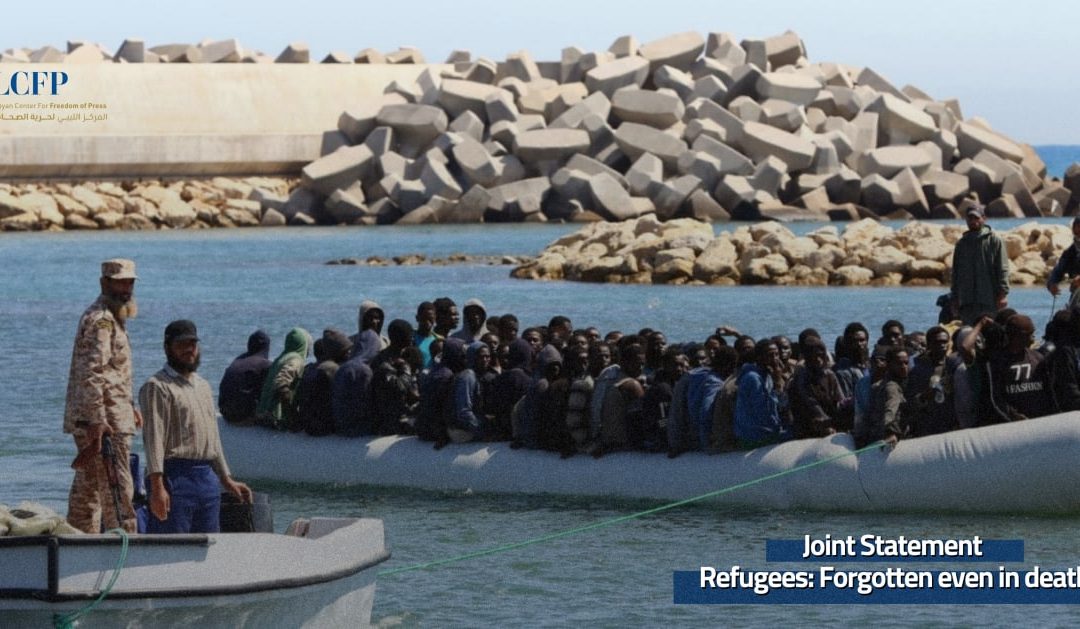
Joint Statement
Amid an absence of legal channels for migration, deaths at sea are on the rise while identification procedures remain negligent: The nightmarish journey of refugees continues even in death
Two months after the shipwreck off the coast of Zarzis in Tunisia and almost five months after the massacre at the crossing point between Nador and Melilla in Morocco, the shipwrecks and loss of life off the coast of the Mediterranean continue unabated. The impunity of the countries and actors responsible for these tragedies is flagrant. The signatory organizations are sounding the alarm and denouncing this hecatomb at the external borders of the European Union.
Since 2021, the number of deaths continues to rise
According to a recent report by the International Organization for Migration’s Missing Migrants Project, 5684 men, women and children have lost their lives on the migration routes to and within Europe since the beginning of 2021. Since 2014, 29,000 people have lost their lives at sea. These figures are unfortunately incomplete due to the large number of “invisible shipwrecks” on both the Central Mediterranean and Atlantic routes.
Behind these numbers are entire lives, stories, families, siblings, children and friends, who have the right to know how their loved ones lost their lives, to recover and identify their bodies, and to give them a dignified burial and a mourning.
According to the report of Caminando Fronteras, on the migratory routes to Spain, 978 people, including 41 minors, died in the first six months of 2022. On the Canary Islands route, 800 people lost their lives. In total, 18 boats disappeared with all the people on board. Almost 90% of the victims disappear at sea and their bodies are never found.
In July 2022 alone, 300 people died trying to reach the Canary Islands from Senegal. In mid-August 2022, 18 people, including a baby, died off the coast of Tarfaya in Morocco. They had been waiting for 8 hours for a rescue operation. On October 1, 2022, a merchant ship rescued a man in an inflatable boat in the Atlantic. In the boat, there were 4 deceased people and the man reported that 29 others were missing. On October 28, 2022, the bodies of 34 people washed ashore south of Dakhla. In early August, a boat with 14 people disappeared after leaving Tipazza, Algeria. These numbers are just a few examples in a sea of despair.
Multiple causes that can easily be addressed
The increased violence against migrants and the increase in deaths is a direct consequence of the EU and Member States’ outsourcing of migration policies, aimed at greater control and security of the North African states’ maritime borders. These measures have resulted in the displacement of migration routes to increasingly dangerous ones, resulting in an increase of deaths.
Instead of opening legal and safe routes and establishing search and rescue mechanisms at sea, the EU and its Member States continue to pursue security and deadly migration policies.
The Spanish government’s approval of sending an additional 30 million euros to Morocco for migration control is a glaring example. Since 2019, Morocco has received 123 million euros from Spain for migration control, in four separate payments. At the same time, the EU has provided 346 million euros to Morocco in the same period and will send another 500 million euros until 2027. Tunisia is not an exception, with Italy sending 19 million euros for border control between 2020 and 2021.
Forgotten in death: Lack of identification procedures denounced
In this context, the atrocities against migrants continue even after their death, as evidenced by the lack of identification procedures from Libya to Tunisia, and from Algeria to Morocco. This situation has been long denounced by the signatory organizations. Policies regarding the identification of bodies on the part of the authorities of the Maghreb and Mediterranean countries are negligent and often consist of burying bodies found on beaches after shipwrecks without any DNA testing or other summary identification procedure. The latest example of this lack of procedure occurred in early October 2022 when the bodies of 18 young people found in Zarzis (including families, women and children), were buried without any form of identification. This event caused strong protests and indignation from families and civil society who demanded that the bodies of those who died in shipwrecks be recovered, identified, and buried with dignity.
The same lack of identification and search procedures for missing persons is found on the Atlantic and Western Mediterranean routes. The practice of unidentified burial has also been documented at land borders, such as at the border between Nador and Melilla after the tragedy of June 24, 2022, where at least 37 migrants died while trying to cross the border. According to the Moroccan Association for Human Rights (AMDH), 77 people are still missing, but the final number of dead and missing will never be known. Immediately after the June 24 tragedy, AMDH Nador noted that the authorities wanted to bury the bodies without conducting the necessary investigations and without identifying the bodies. It was only due to the intervention of the AMDH that the authorities stopped this summary burial.
According to a recent BBC investigation, on June 24, lifeless bodies were dragged by Moroccan police into an area that, according to the BBC, was under Spanish control. At the same time, the Spanish Interior Ministry denies dragging the bodies from Melilla to the Moroccan border, while it is also accused of withholding crucial CCTV evidence from official investigations.
On October 31, 2022, UN experts denounced the lack of accountability in Spain and Morocco and called for a “thorough investigation, reparations to the victims and their families, and guarantees that this will not be repeated.”
The multiplication of deaths at sea and the outrage that is constituted by the mistreatment of bodies in death can no longer be tolerated in the Mediterranean. The signatory organizations therefore issue a series of recommendations for the European Union, its Member States, and the States of the southern shore to put an end to these practices.
Recommendations
The signatory organizations:
– Call for the establishment of safe and legal channels to access these countries and their asylum procedures;
– Call for the increase of “resettlement” programs and relocation mechanisms as the only valid response to reduce deaths and disappearances at sea;
– Call on the European Commission to eliminate the conditionality of development aid to European migration policy objectives. These funds should not be linked to the eventual cooperation of third countries in border management and readmission policy;
– Call on the European Commission to establish accountability mechanisms linking EU aid to the human rights obligations of partners. EU funds for migration should be disbursed in a transparent manner, with information on the institutions and organizations involved, earmarked budgets and the results of any projects carried out made public;
– Call on the European Commission to establish effective and transparent mechanisms for monitoring the political and legal actions of EU member states, with a system of sanctions to penalize their violations of European and international law. The infringement procedure must be strengthened to ensure accountability for human rights violations by EU member states, including the violation of the principle of non-refoulement, which runs counter to the 1951 Geneva Convention on the Status of Refugees;
– Call for the abandonment of negotiations on readmission agreements. The current violations of migrants’ and refugees’ rights in Morocco, Tunisia, Algeria and in the countries of origin, and the absence of post-return monitoring mechanisms, are not sufficient to qualify the countries of origin or the third country as “safe”;
– Call for a dialogue with the new actors in the migration environment who are responsible for part of the migration management to ensure that their protocols are consistent with human rights. Private actors such as border control companies are one example;
– Call for an examination of the implications of established policies, such as “voluntary returns”, and their impact on migration choices to more dangerous routes, and establish an effective and transparent mechanism for monitoring returns, in collaboration with civil society actors;
– Call for the establishment of measures, procedures and protocols that respect and protect the rights of people on the move.
On greater coordination/cooperation in search and rescue at sea, the signatory organizations:
– Call on States to establish a coordinated, effective and transparent maritime search and rescue mechanism to prevent further loss of life at sea;
– Call on States to redirect funds currently spent on border surveillance to search and rescue.
On greater coordination/cooperation on identification mechanisms and the search for missing migrants, the signatory organizations:
– Call on States to establish a coordinated mechanism to search for missing migrants at sea and on land;
– Call on States to redirect funds to increase resources and capacity to establish effective identification procedures, search mechanisms for missing migrants and repatriation of bodies;
– Remind States that the responsibility for identification remains with them;
– Support projects that take into account and integrate the processes of identification of deceased persons and the search for missing migrants;
– Call for the authorities and relevant actors to increase coordination with civil society for their work, and establish civil society access to identification procedures and protocols;
– Request that the States concerned (EU Member States, Maghreb, countries of origin or exit) recognize their de jure and de facto responsibilities towards migrants, in particular to facilitate the identification and repatriation of deceased persons. In this sense, the IOM could facilitate transnational cooperation between the embassies of the countries of origin and the countries where the death or disappearance has been registered;
– Call for the establishment of effective and permanent mechanisms with a human rights-based approach to support the families of missing persons and survivors, so that all persons concerned are linked to the authorities and receive psychological assistance adapted to the particular needs of each group of victims;
– Call for the establishment of mechanisms to protect families and civil society actors involved in identification efforts from prosecution and criminalization;
– Call on States to put in place clear and effective legal frameworks to clarify and implement the different stages of the identification procedures and monitoring mechanisms to ensure that the objectives of the legal instruments have been achieved.
Signatories: